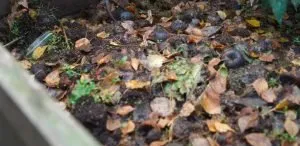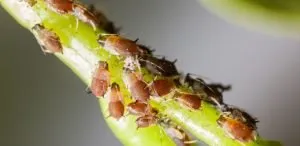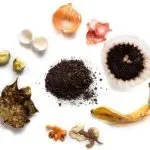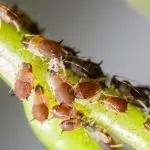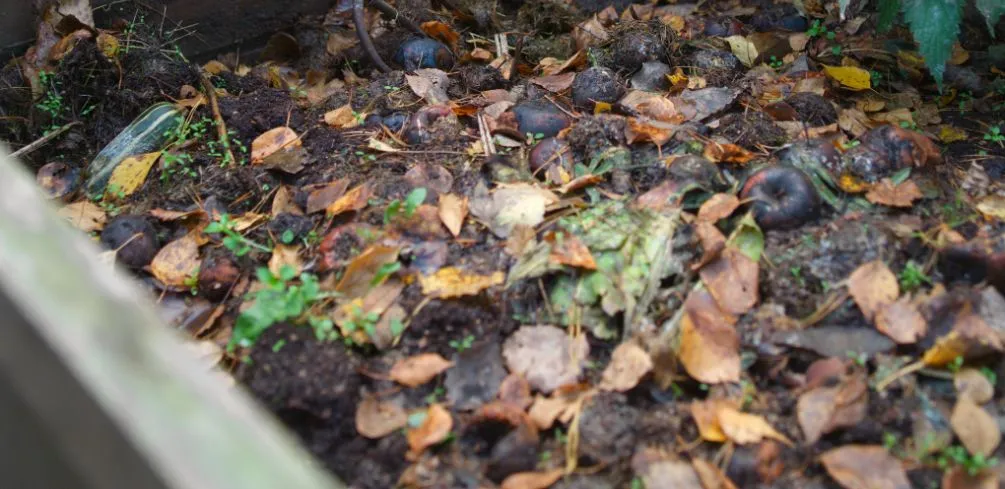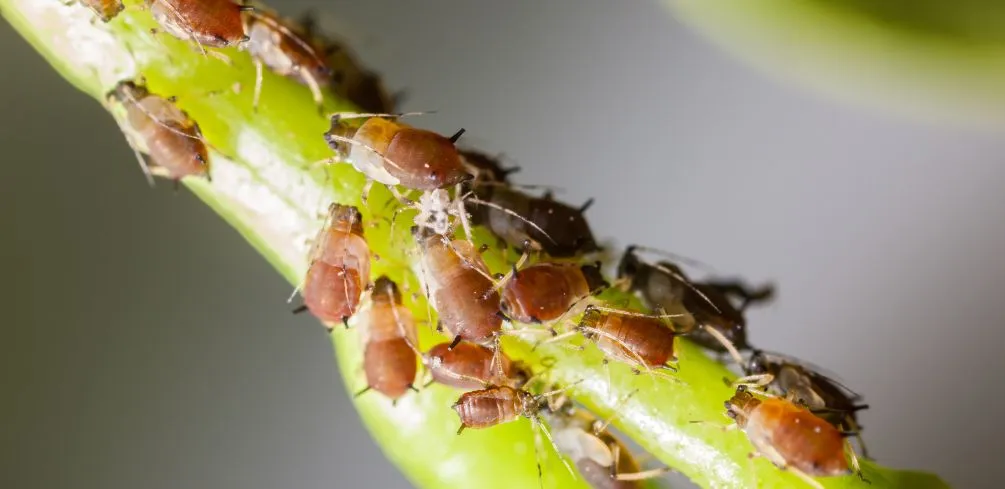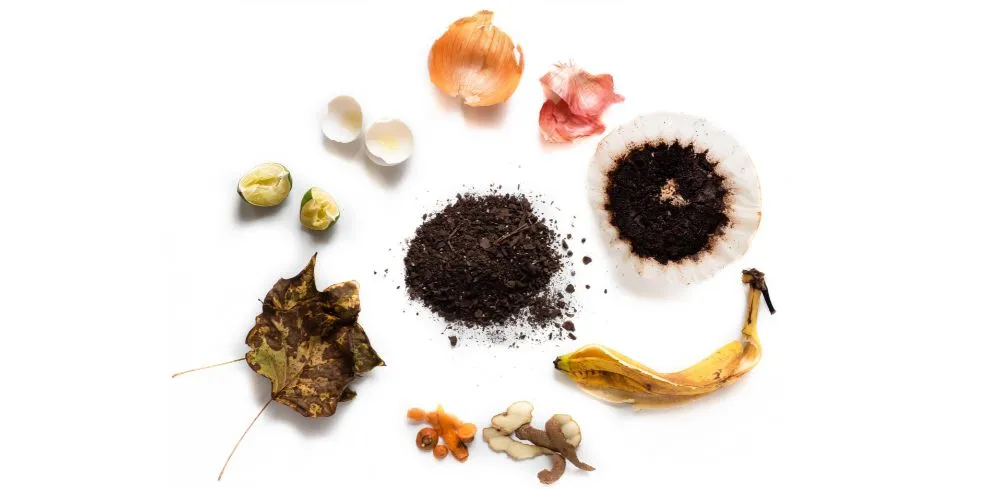Composting is a sustainable and environmentally friendly practice that helps reduce waste and enrich the soil. However, despite its benefits, composting can also generate unpleasant odors that can be challenging to eliminate.
A smelly compost not only poses a nuisance to the surrounding environment but can also attract pests and rodents. Therefore, it is essential to understand the causes of smelly compost and how to fix it.
Composting involves the decomposition of organic matter, such as food scraps, leaves, and grass clippings. During this process, microorganisms break down the organic matter, producing heat and releasing gases such as carbon dioxide and methane.
While these gases are natural byproducts of the decomposition process, they can cause an unpleasant smell if not managed correctly. In this article, we will explore some common reasons why your compost may be emitting an unpleasant odor and provide practical solutions on how to fix it.
Understanding The Causes Of A Smelly Compost
When it comes to composting, creating a pile that smells unpleasant is a common issue that many gardeners face. This can be attributed to various factors such as an imbalance in the ingredients, lack of oxygen, high moisture content, or simply due to common mistakes made during the composting process.
One of the most common mistakes is adding too many nitrogen-rich materials, such as grass clippings or fresh manure, without balancing it with enough carbon-rich materials like dried leaves or twigs. This can lead to an excess amount of ammonia in the pile, which causes a strong odor.
Troubleshooting techniques are essential when dealing with a smelly compost pile. It’s important to identify the root cause of the problem and take the necessary steps to rectify it.
For instance, if there’s not enough oxygen in a pile, turning or aerating it frequently will help increase oxygen flow and reduce unpleasant smells. Additionally, reducing moisture levels by adding dry material like sawdust or shredded newspaper will also help control bad odors.
By understanding these common mistakes and troubleshooting techniques, one can easily fix a smelly compost pile and create nutrient-rich soil for their plants.
Balancing Your Compost Ingredients
One of the reasons why compost can smell bad is due to an imbalance in compost ingredient ratios. A perfect compost pile should have a balance between greens (nitrogen-rich materials) and browns (carbon-rich materials).
Greens include kitchen scraps, grass clippings, and manure, while browns include dry leaves, wood chips, and shredded paper. If you have too many greens in your compost pile or not enough browns, this could cause unpleasant odors such as ammonia, or rotten egg smells.
On the other hand, if you have too many browns and not enough greens, your compost will take longer to decompose and may not heat up enough to kill off any harmful bacteria. Troubleshooting Compost Odor involves balancing out your ingredients by adding more carbon-rich materials like dried leaves or straw.
You can also mix up your compost pile to add air to it, which helps with decomposition. Another way to reduce odor is to add garden soil which contains beneficial microorganisms to help break down the organic matter.
Adding lime or wood ash can also help neutralize acidic odors from kitchen scraps such as coffee grounds or citrus fruits. By achieving a balance in your compost ingredient ratios, you can create a healthy environment for beneficial microorganisms that aid in the decomposition process while eliminating unpleasant odors.
Proper Moisture Management
Moisture balance is crucial to maintaining a healthy compost pile. Too much moisture can cause the compost to become overly compact, which inhibits airflow and slows down the decomposition process.
On the other hand, if the compost becomes too dry, it can also slow down decomposition and lead to an unpleasant smell. The key is to find a balance between too wet and too dry.
One way to maintain proper moisture levels in your compost is by monitoring its location. If your compost bin is in a sunny area or exposed to harsh weather conditions, it may dry out quickly. In this case, you may need to water your compost regularly or move it to a more sheltered location.
Conversely, if your compost bin is located in a low-lying area where rainwater collects, it may become waterlogged. To avoid this issue, consider moving your bin to a slightly elevated area or adding some drainage holes at the bottom of the container. By paying attention to the moisture balance of your compost and adjusting its location accordingly, you can ensure that it stays healthy and odor-free.
Proper moisture management is just one aspect of maintaining a successful compost pile. By keeping an eye on the amount of moisture in your pile and adjusting its location as needed, you can help create an ideal environment for decomposition. Remember that different types of organic matter will require different amounts of water, so be sure to add water gradually as needed rather than all at once.
With these tips in mind, you can enjoy all the benefits of nutrient-rich soil without having to deal with any unpleasant smells!
Turning Your Compost Regularly
It is a common theory that to fix a smelly compost, all you need to do is turn it regularly. While this may sound like an easy solution, the truth is that turning your compost regularly has many benefits beyond just reducing odor.
When you turn your compost pile, you introduce more oxygen into the mix, which helps break down the organic material faster. This process also helps prevent clumping and promotes better drainage which can reduce the risk of anaerobic conditions that lead to bad smells.
To effectively turn your compost pile, here are some tips to follow:
- Use a pitchfork or garden fork to gently turn over the materials.
- Make sure to mix in any dry spots with moist areas for even decomposition.
- Repeat this process every 1-2 weeks until your compost is ready.
By turning your compost regularly, not only will you be able to fix any smelly issues, but you’ll also reap the benefits of Vermicomposting by creating nutrient-rich soil for your garden.
Troubleshooting Common Composting Issues becomes easier when you have properly turned and maintained your compost pile. Remember to always wear gloves and protective gear when handling organic waste materials and consult local guidelines for proper disposal methods.
Additional Tips For Keeping Your Compost Odor-Free
Aside from the basic guidelines for composting, there are additional tips that you can follow to keep your compost odor-free. One of the most important things to consider is your composting tools. Make sure that you have the proper tools, such as a pitchfork or a shovel, to turn and aerate your compost pile regularly.
This helps in breaking down organic matter faster and prevents it from emitting an unpleasant odor. Moreover, using DIY compost bin ideas can also help in reducing odors. This includes building a covered bin or using burlap sacks to cover your pile.
Another tip is to avoid putting meat, dairy products, and oily foods in your compost pile. These items tend to rot easily and produce strong odors that can attract pests such as rats and flies. Additionally, make sure to maintain a balance between green and brown materials in your pile.
Too much green material, like grass clippings, can cause the pile to become too wet and stinky, while too much brown material, like leaves, can cause it to dry out.
By following these additional tips, you can ensure that your compost remains odor-free and healthy for both you and the environment. So go ahead, grab your composting tools, try out some DIY bin ideas, and start creating nutrient-rich soil for your garden!
| Composting Tools | DIY Compost Bin Ideas | Benefits |
|---|---|---|
| Pitchfork | Covered Bin | Prevents pests |
| Shovel | Burlap Sacks | Reduces odor |
| Tumbler | Wooden Pallets | Faster breakdown of organic matter |
| Compost Thermometer | Plastic Storage Container | Better temperature control |
| Pitchfork | Easy access for turning the compost pile. | Aerates the compost pile for better oxygen flow. |
| Garden Claw | Trash Can | Easy access for turning compost pile. |
Frequently Asked Questions
Can I Add Meat And Dairy Products To My Compost?
When it comes to composting, there are benefits and drawbacks to adding meat and dairy products. On the one hand, these organic materials can provide valuable nutrients for your compost pile, especially if they are broken down properly.
However, meat and dairy products can also attract pests and cause unpleasant smells if not managed correctly. As such, it’s important to consider alternative options for disposing of these food scraps if you’re not comfortable adding them to your compost heap.
For example, you could try burying them in your garden or using a bokashi bin to ferment them before adding them to your compost pile.
Ultimately, the decision of whether or not to include meat and dairy in your compost is up to you – just be sure to weigh the potential benefits against the possible drawbacks before making a final decision.
How Often Should I Add New Material To My Compost Pile?
In the world of composting, maintenance is key to achieving optimal results. Just like a garden requires regular watering and pruning, a compost pile requires consistent attention to ensure its success.
This brings us to the question of how often one should add new material to their compost pile. The answer lies in finding the perfect balance between too little and too much. Adding new organic matter too frequently can prevent proper decomposition while waiting too long can cause an unpleasant odor or attract pests.
Therefore, it is crucial to find the optimal composting frequency that works best for your specific setup and climate. By doing so, you will not only create nutrient-rich soil for your plants but also join a community of conscious individuals who are committed to reducing waste and preserving our planet’s resources.
What Should I Do If My Compost Smells Like Ammonia?
Ammonia sources are naturally present in the decomposition process that occurs within a compost pile. However, an overpowering ammonia smell can indicate an imbalance in the composting process.
Composting troubleshooting involves identifying and addressing the source of excess ammonia. This can include adding more carbon-rich materials such as dried leaves or sawdust, turning the compost pile regularly to increase oxygen flow, and avoiding adding too many nitrogen-rich materials like fresh grass clippings or manure at one time.
By correctly managing the compost pile, it is possible to eliminate unpleasant odors and create nutrient-rich soil for use in gardening and other applications.
Is It Normal For My Compost To Have A Musty Or Earthy Smell?
Composting is a natural process that involves the breakdown of organic matter into nutrient-rich soil. It is normal for compost to have a musty or earthy smell, which indicates that the process is functioning properly.
However, if the odor becomes unpleasant or overpowering, it may be a sign of an underlying issue with the compost.
Compost odor control and troubleshooting tips can help address these concerns. For example, adding more dry materials such as leaves or straw can help balance the moisture content in the compost pile, which can reduce odors.
Additionally, turning the pile regularly can increase airflow and promote proper decomposition. By following these tips and monitoring the compost pile regularly, individuals can maintain a healthy and odor-free compost heap.
Can I Use A Compost Bin Indoors Or Will It Create A Bad Odor?
Composting methods have become increasingly popular as more people recognize the environmental benefits of reducing waste. Indoor composting is a great way to utilize kitchen scraps and generate nutrient-rich soil for plants, but it can also create unpleasant odors if not done properly.
To prevent bad smells, it’s important to balance the carbon and nitrogen content of the compost by adding equal parts of “brown” materials like leaves or shredded paper and “green” materials like fruit peels or coffee grounds.
It’s also helpful to keep the compost moist but not too damp, as excess moisture can lead to anaerobic bacteria growth and bad odors. Lastly, make sure to turn the compost regularly to promote air circulation and break down organic matter faster.
By following these indoor composting tips, you can enjoy the benefits of composting without worrying about any unwanted smells in your home.
Conclusion
Composting is an eco-friendly way to reduce waste and create nutrient-rich soil. However, it is important to know how to properly maintain your compost pile to prevent unpleasant odors.
Avoid adding meat and dairy products as they can produce a foul smell and attract animals. It is recommended to add new material every few days and turn the pile with a pitchfork to increase airflow.
If your compost smells like ammonia, it may be too wet or have too much nitrogen-rich material. Add more dry materials such as leaves or straw and mix thoroughly.
A musty or earthy smell is normal for compost, but if it becomes overwhelming, it may indicate that the pile needs more air circulation. Indoor composting can be done using a bin, but proper ventilation is crucial to avoid any unwanted scents in your home.




